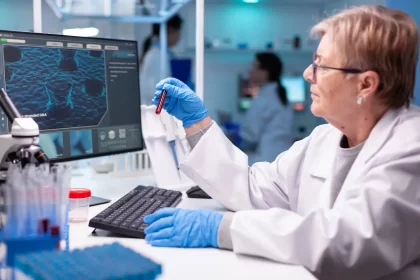Living with interstitial cystitis can be tough. This chronic condition causes pain and discomfort in the bladder. It can disrupt daily life. A skilled urologist plays a key role in managing this condition. In places like urologist mount vernon, experts work to improve patient well-being. Their approach combines diagnosis, treatment, and ongoing care. Understanding the role of these professionals can be the first step toward relief.
What is Interstitial Cystitis?
Interstitial cystitis, often called IC, is a persistent condition. It affects the bladder and causes pain and pressure in the pelvic area. Unlike typical bladder infections, IC does not stem from bacteria. Instead, it’s a complex disorder that requires careful management. For more on IC, the National Institute of Diabetes and Digestive and Kidney Diseases offers detailed insights.
The Role of Urologists
Urologists are medical experts focused on the urinary tract. They understand the complexities of IC and offer specialized care. Their expertise includes:
- Diagnosis: Pinpointing IC involves ruling out other conditions. Urologists perform tests and evaluations to ensure an accurate diagnosis.
- Treatment: Treatment plans often combine medication, physical therapy, and lifestyle changes. Urologists guide patients through these options.
- Ongoing Care: IC is a chronic condition. Regular follow-ups with a urologist help manage symptoms and adjust treatments as needed.
Diagnosis Methods
Diagnosing IC involves several steps. Urologists may use tests like:
| Test | Purpose |
|---|---|
| Urinalysis | Checks for infections or blood in the urine |
| Cystoscopy | Allows direct viewing of the bladder’s interior |
| Pelvic Exam | Rules out other disorders |
These tools help urologists understand the condition better and tailor treatment plans.

Treatment Options
Once diagnosed, treatment plans are tailored to individual needs. Common options include:
- Medications: Pain relievers and bladder relaxants can reduce symptoms.
- Physical Therapy: Focuses on pelvic floor muscles to relieve pressure.
- Dietary Adjustments: Some foods aggravate symptoms. Urologists may suggest avoiding irritants.
Each plan is unique. What works for one person might not work for another. Continuous communication with a urologist ensures plans remain effective.
Living with IC
Life with IC requires adjustments. Urologists assist in making these changes manageable. They recommend strategies to minimize flares and cope with the condition. The Urology Care Foundation provides additional resources for managing daily life with IC.
Conclusion
Urologists are essential in the journey of managing interstitial cystitis. Their expertise helps navigate the complexities of diagnosis and treatment. Regular visits and open dialogue with a urologist can make living with IC more manageable. They play a critical role in improving quality of life.





